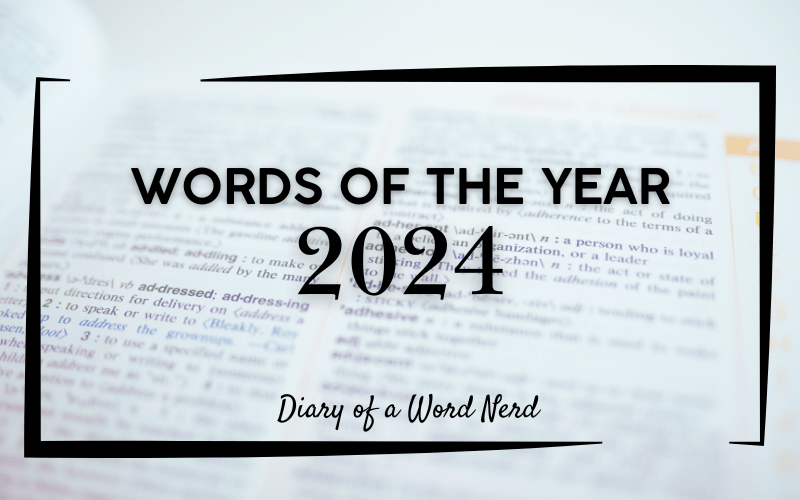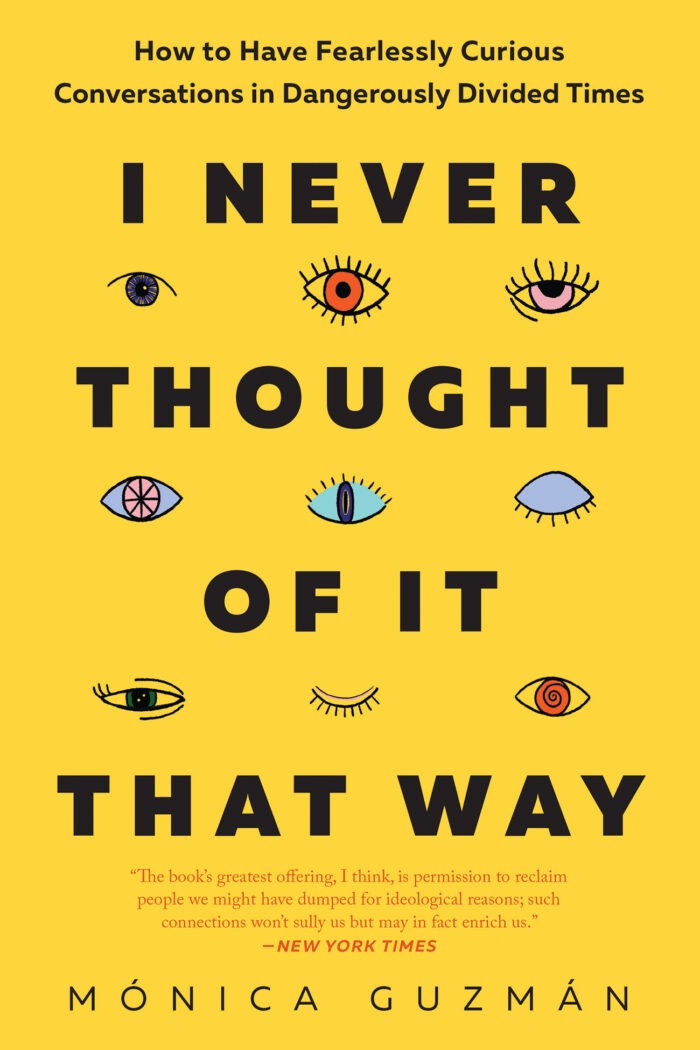Any self respecting Word Nerd embraces the challenge of keeping up with modern language. Words change meaning and usage based on culture and time. I particularly enjoy deciphering the ever changing language of teens. I’m not ashamed to ask for explanations of phrases like “rizz,” even if it sparks a condescending eye roll from a 15 year old.
Each January, I enjoy reflecting on words used to describe the past year. I consult Merriam-Webster, Oxford, and others to see what a few carefully chosen “Words of the Year” say about our present situation. This year packs some doozies.
Brain Rot
Oxford’s Word of 2024 is “brain rot,” a sad statement about our state of mind. Oxford defines Brain Rot as “the deterioration of a person’s mental or intellectual state, especially viewed as the result of over consumption of material (especially online content) considered to be trivial or unchallenging.” It can also refer to “anything likely to lead to such deterioration.” Surprisingly, this term isn’t a 21st century phenomenon. Way back in 1854, Henry David Thoreau gave us the first recorded use of Brain Rot in his book Walden. He said, “While England endeavours to cure the potato rot, will not any endeavour to cure the brain-rot – which prevails so much more widely and fatally?”
Polarization
Merriam Webster’s word for 2024 is “polarization.” It comes from the Latin polaris, referring to the opposite poles of the Earth. M-W defines polarization as:
division into two sharply distinct opposites; especially, a state in which the opinions, beliefs, or interests of a group or society no longer range along a continuum but become concentrated at opposing extremes.”
Merriam-Webster
If you, like me, are tired of hearing about polarization and why it’s making everything difficult, think instead about the evolution of its meaning. When it originally came into use, it described a physical phenomenon- light waves vibrating to a definite pattern. It’s interesting how something that once described an objective law of nature now is used to describe intellectual, political, or social differences.
Sidebar, in an effort to combat polarization in my own sphere of influence, I plan to read Monica Guzman’s book I Never Thought of It That Way this year.
Whether you’re left, right, center, or not a fan of labels: If you’re ready to fight back against the confusion, heartbreak, and madness of our dangerously divided times—in your own life, at least—Mónica’s got the tools and fresh, surprising insights to prove that seeing where people are coming from isn’t just possible. It’s easier than you think.
From Goodreads
Demure
Dictionary.com chose demure as it’s word of the year. The word experienced a 1200% increase in usage online in 2024. Demure comes from Middle English dem (e) ur(e), meaning characterized by shyness and modesty; reserved. It can also mean coyly decorous, sober, or sedate. Dictionary attributes its popularity to TikToker Jools LeBron, who used demure in videos to describe modest, subdued, respectful appearance and behavior at work or in other public spaces. Seems like it’s more about an awareness of presentation than an interest in modesty. Darn.
Allision
Finally, a new word to me from the 2024 collection is allision, from the Latin allisus, to strike against. Back in March 2024, the cargo ship Dali crashed into the Frances Scott Key Bridge in Baltimore. Many called the event a “collision,” but, collision describes two moving objects colliding. A more accurate term for the Dali event is allision: the act or an instance of a ship striking a stationary object (such as another ship that is not underway) —distinguished from collision. Why would you need to know this? Because you’re a Word Nerd, and you care about specifics!
Do any of these words resonate with you? Let me know in the comments. The term “brain rot” hits me hardest, as something I want to avoid. I’ve spent less time on social media in the past month, and I don’t miss it. I’m looking for ways to use my precious moments mindfully in 2025 and focus on consuming content that inspires and informs.
Happy New Year, and cheers to learning more about language in 2025!
Thanks for getting nerdy with me!




I kind of love that “brain rot” has been around for so long! I wonder what Thoreau would do if he learned about TikTok.
Oh my word – he’d probably cry.